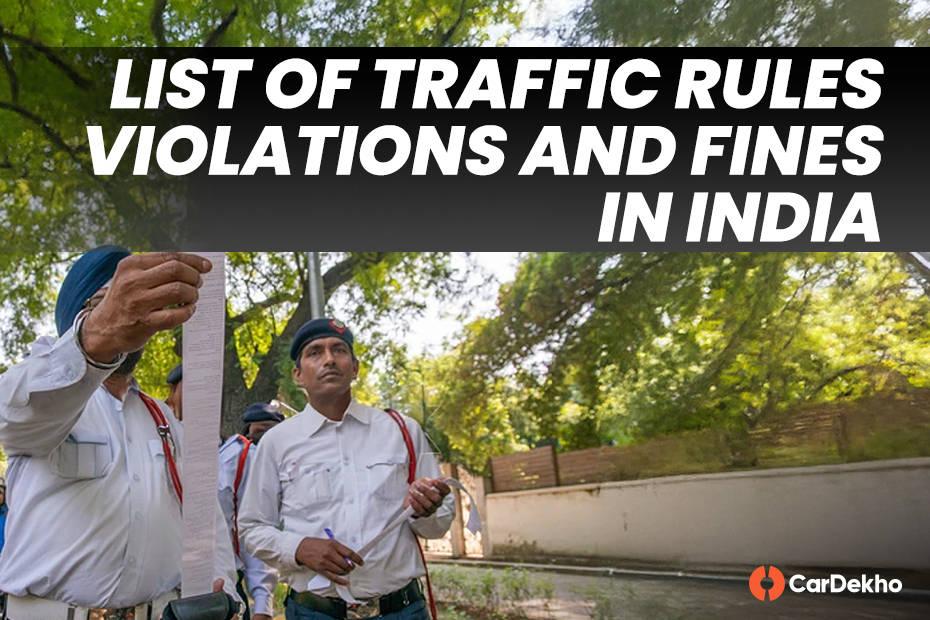First Time Car Buyers? Look For These 11 Things!
Modified On Sep 07, 2024 07:04 PM By Yashika
- Write a comment
These tips will help you buy your first car with confidence, minus the beginner mistakes and unnecessary stress

Buying a car can feel pretty overwhelming, especially if it's your first one. With so many things to consider - from researching cars that fit within your budget to visiting dealerships, taking test drives, figuring out loans and EMIs, and choosing the right insurance - it’s easy to feel a bit lost. You might even wonder, “Where do I even begin?” But worry not, it doesn’t have to be that daunting. Let’s break it down step by step. With these 11 tips, you'll have everything you need to know before making that exciting decision on your first car.
Evaluating the Need And Usage

Start by thinking about what you need from your car. Will it be mostly used for daily commutes and occasional family outings or do you wish to flaunt it as a style/status symbol?
Think about how many kilometres you’ll drive daily and the locations you visit frequently. Will your commute involve traveling over 50 kilometers daily, or will you primarily use the car for short trips to nearby markets? Understanding these factors will help you pick the right fuel type and save money in the long run.
Suggestion: If your daily running is low, say, less than 20km, a petrol car might be a better choice because it’s cheaper upfront than diesel, CNG, or EV. To break down the numbers for you, with a daily drive of 20km in a petrol car that returns 13-14kmpl, you’ll end up spending only around Rs 50-55,000 on fuel every year. So, unless you’re covering long distances regularly, you can skip the diesel option, which could cost you around Rs 1-2 lakh more upfront depending on the model.
Different Body Types
While choosing the body type, weigh your lifestyle and needs. Here are 3 major body types to choose from-
- Hatchbacks: Compact, fuel-efficient, and easy to maintain, hatchbacks are perfect for city driving. If your daily commute is short and you also have limited parking space, a hatchback might be the right choice for you.
- Sedans: This body type provides a comfortable ride and enough room for passengers and luggage, making them a versatile option for various needs or small family outings.
- SUVs/MPVs: SUVs or MPVs offer ample legroom, comfortable seating, and a higher driving position, making them ideal for large families or frequent road trippers. If you live in a city with poor roads or frequent flooding, a SUV could be a better choice.
Budget and Financing/Ownership Cost

Now comes the most important question: how much are you willing to spend? Remember, the ex-showroom price mentioned on the automaker’s website (OEM) is just the starting point. There are additional costs including RTO, insurance, and handling charges which increase the final price.
Suggestion: As a rule of thumb, your total monthly car expenses such as EMI, insurance premium, maintenance, and fuel should not exceed 25% of your monthly income. This ensures that your new purchase doesn’t burden your finances. Eg: If your earnings are Rs 75,000 per month, then your car expenses should ideally be under Rs 18,750.
New vs. Old Car
Making a choice between a new or used car comes with its own set of pros and cons. Of course, we all know that nothing beats the fragrance of a new car, the latest technology, and attractive showroom warranties. But a shiny new car also comes with a higher price tag. That said, pre-owned cars can be a smart way to save lakhs of money, if you opt for a genuine model with a good maintenance history.
Suggestion: To make the best decision, aside from budget, think about factors like depreciation, maintenance, and insurance costs. If you opt for a pre-owned car, make sure to get it inspected thoroughly by a trusted mechanic.
Feature and safety
Once you have narrowed down your car model options, it’s time to dive into the features. Some people might be tempted to go all out and get a car loaded with every feature under the sun, even if they don’t really need them. But that can end up pushing your budget way beyond what you originally planned. For example, features like a sunroof, a large touchscreen infotainment system, flush-fitting door handles, or even certain connected car features (barring a few) are more of a ‘nice to have’ than a ‘must-have’. So, you could skip these without missing out.
If there’s anything that you must prioritise, then that should be safety. Features like airbags, ABS (anti-braking system), traction control, and even rear parking sensors are essential and can save lives. While ADAS might feel a bit unnecessary and annoying to use in Indian driving conditions, it can help prevent accidents. But opt for it only if you truly feel its need to avoid overspending. Also, make sure you check the crash test safety ratings of the model you’re interested in.
Fuel Type Requirements
Selecting the fuel type depends on your driving habits and budget. Petrol cars are generally cheaper to purchase but have lower mileage. Diesel cars, on the other hand, provide better mileage but come with higher initial costs.
Then there’s CNG which is an eco-friendly and cost-effective option, but can be inconvenient due to the limited availability of CNG stations. That said, EVs (electric vehicles) are the cleanest option and offer a very low running cost, but again there’s a lack of charging infrastructure, and EVs tend to be expensive upfront.
Suggestion: Consider your daily commute distance and access to charging stations or CNG pumps when making the decision. Opt for a diesel car only if your daily commute is over 50 kilometers. Also, an automatic car can add a lot of convenience if most of your driving is within the city. But keep in mind they often come with a higher price tag and lower mileage compared to manual transmissions.
Resale Value of the Car

If you plan to upgrade your car in a few years, then the resale value is an important factor. Factors like fuel efficiency, brand reputation, and the condition of the vehicle at the time of resale play a role. Choosing a reliable brand with a good service network can also ensure better resale potential.
Remember, even though diesel engines offer great mileage, they might see a dip in resale value owing to the tightening emission norms.
After Sales Service

It’s important to understand your prospect brand's after-sales service. Check the reviews of existing customers and if the brand has a widespread, easily accessible service network. Reliable brands offer prompt service, clear communication, and reasonable costs for routine maintenance. Some brands may offer service after 1 month of purchasing or 1000 kms, whichever is earlier, then after 6 months or 50,000 kms whichever is earlier and so on..
Additional Maintenance Cost
Maintenance costs go beyond routine servicing. They include expenses for wear-and-tear parts such as brake pads, tyres, batteries, oil, and filters, which need replacement periodically. However, some components, like timing belts and spark plugs, have longer lifespans but can be costly to replace. Additionally, there could be unforeseen repairs due to accidents, weather damage, or mechanical failures can quickly add up.
Suggestion: To manage these costs, choose a car which is known for its reliability and lower maintenance. Invest in extended warranties or maintenance packages that can further protect against sudden, high repair costs, providing peace of mind and financial stability over the car's life.
Reviews and Ratings
Unless you have an in-depth knowledge of the automotive industry, it’s always advisable to seek expert advice before buying. For trustworthy and detailed expert reviews, you can rely on CarDekho to guide you through each car's pros and cons. You can also compare different models/variants to understand what specs and features each car offers. To stay updated and informed about the latest trends and insights in the automobile industry, follow our Instagram page and YouTube channel.
Test Drive and Final Negotiations

Finally, never skip the test drive. This is your chance to see if the car lives up to your expectations. During the drive, focus on comfort, handling and the overall driving experience. Feel free to ask as many questions as you need to your dealership.
Remember to visit multiple dealerships and compare the offers beforehand. Also beware of dealership add-ons, including extended warranties, paint protection, or some car accessories.
15 out of 15 found this helpful












